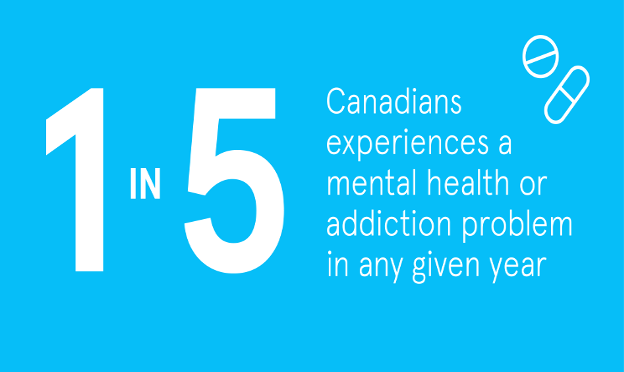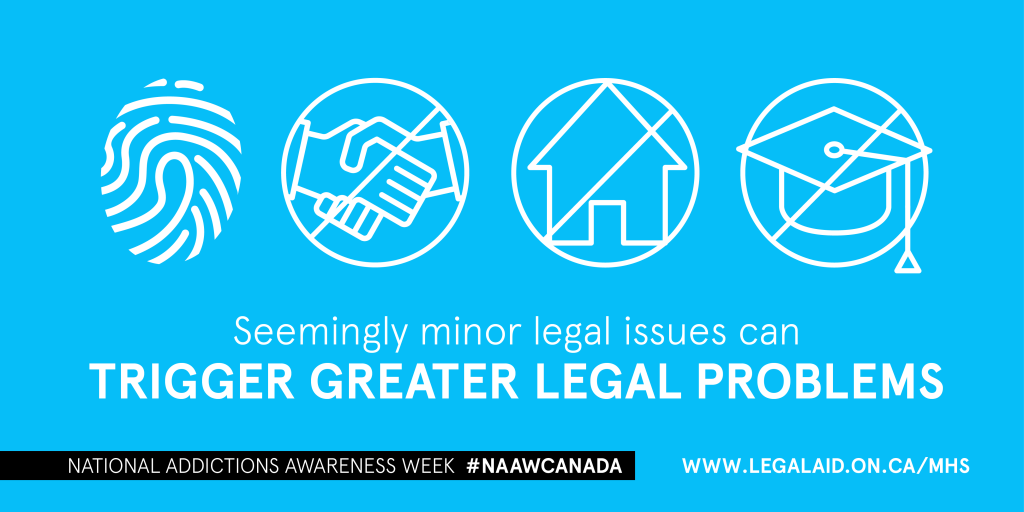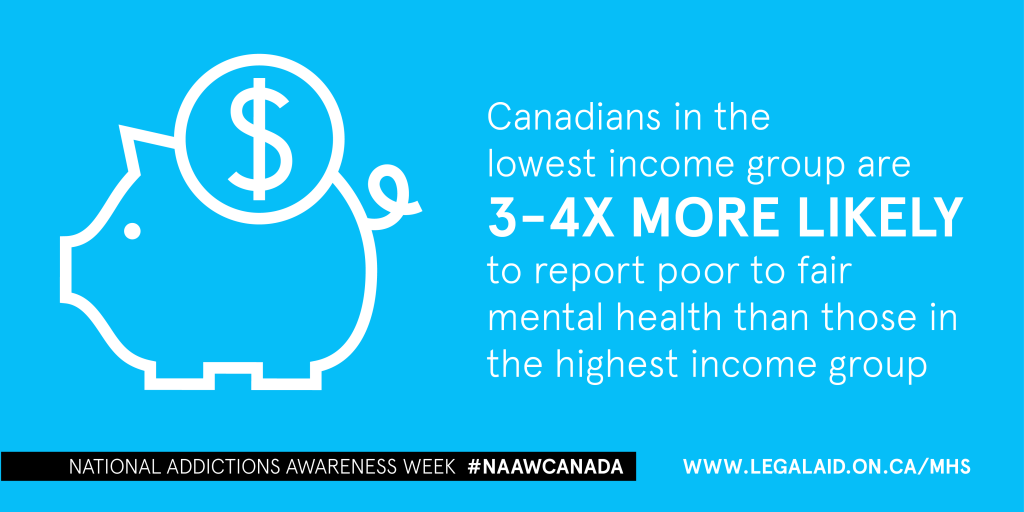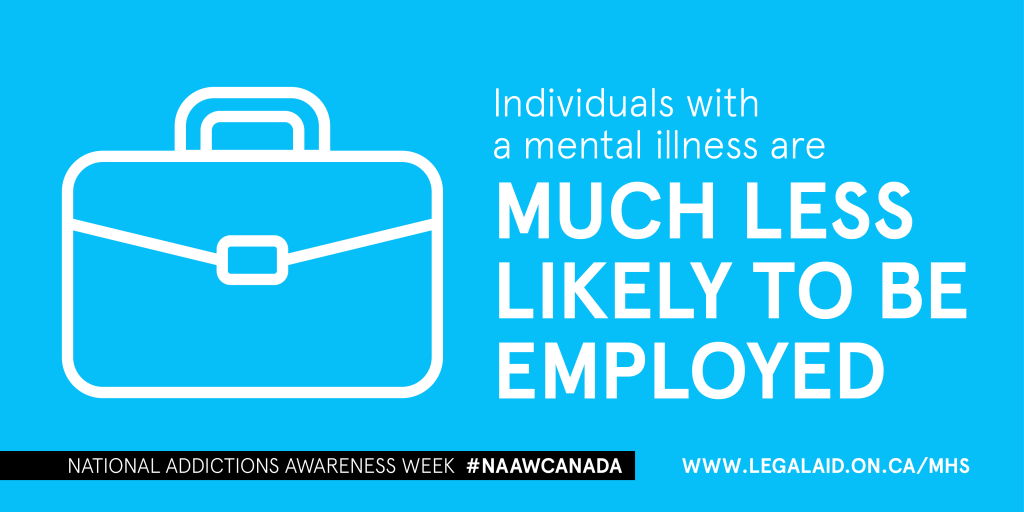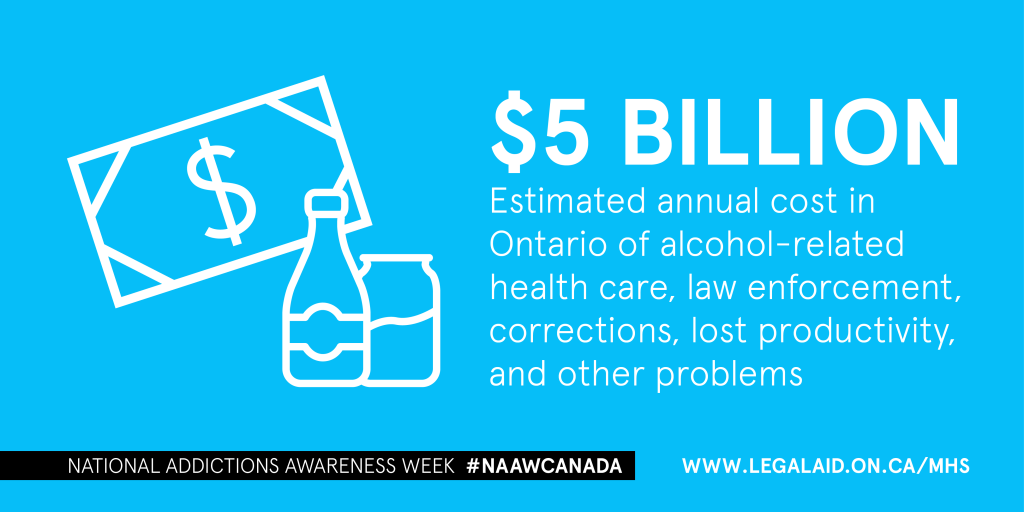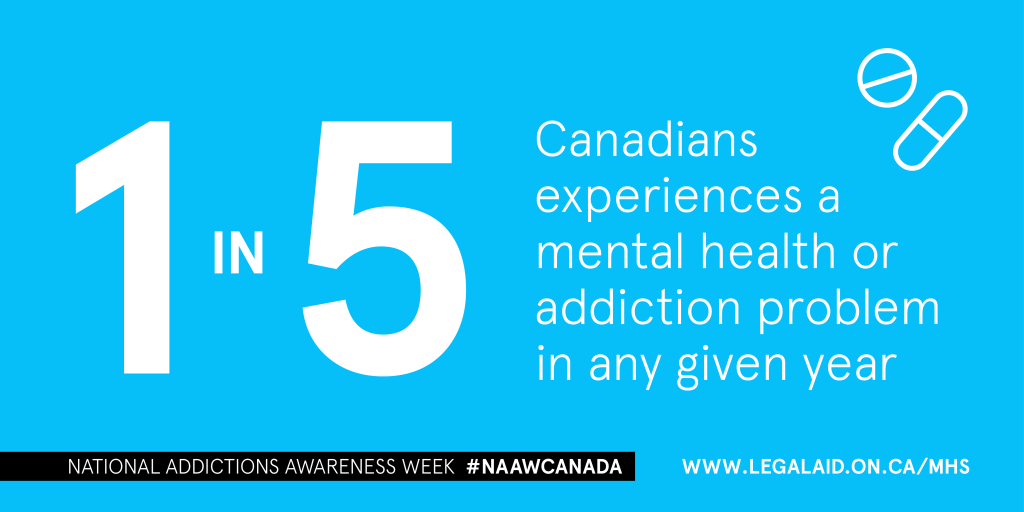Infographic: National addictions awareness week
- 1 in 5 Canadians experiences a mental health or addiction problem in any given year.
- Addiction is a treatable chronic health condition that affects individuals, families and communities.
- 3 times to 4 times more likely for Canadians in the lowest income group to report poor to fair mental health than those in the highest income group.
- Because of negative attitudes and stereotypes, people with addictions face challenges when renting a home.
- $5 billion: Estimated annual cost in Ontario of alcohol-related health care, law enforcement, corrections, lost productivity, and other problems.
- Individuals with a mental illness are much less likely to be employed.
- Seemingly minor legal issues can trigger greater problems.
- A history of police contact or offences creates a barrier to employment, supportive housing and treatment programs, travel, and education.
- Drug treatment courts in Canada began as a response to large numbers of offenders being incarcerated for drug-related offences and continuing to re-offend due to underlying drug dependency.
- December 1998: The first drug treatment court was established in Toronto, bringing together the criminal justice system and treatment services more effectively with drug-addicted offenders.
Legal Aid Ontario’s Mental Health Strategy
- Expanded legal eligibility and coverage for people with mental health and addiction issues.
- Lawyers can help with guardianship disputes, challenge health care decisions made by substitute decision makers, and step in to represent someone with no prior criminal record.
- Direct referrals to local mental health and addiction services when calling LAO.
- Expansion of face-to-face legal services at familiar community settings like community health centres, drop-ins and shelters.
- Mental health training program to help specialists gain a better understanding of promoting, protecting and expanding patient rights.
Sources: Canadian Centre on Substance Abuse; Centre for Addiction and Mental Health; Ontario Human Rights Commission; Department of Justice
